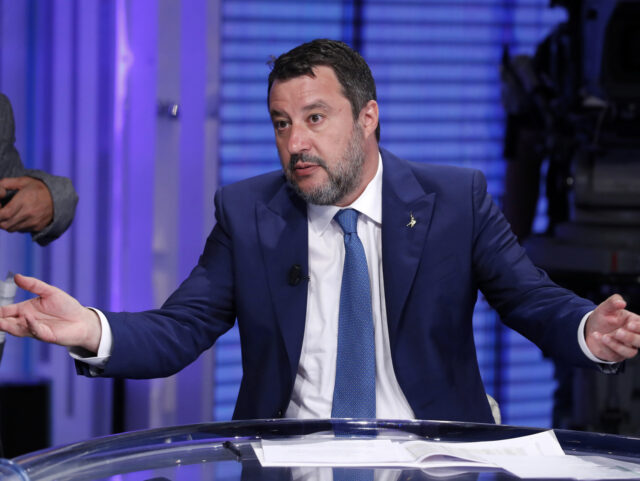A rumour that claimed Russia influenced populist Matteo Salvini to collapse Italy’s technocratic “unity” government under Mario Draghi has been quashed by an official with links to Italian intelligence.
Franco Gabrielli, the undersecretary to the presidency of the Council of Ministers with delegation to the secret services, stated that there was no evidence that Russia played a role in Salvini’s actions and the subsequent collapse of the Draghi government.
“The news that appeared in the newspaper La Stampa, about the attribution to national intelligence of alleged interlocutions between the lawyer Capuano and representatives of the Embassy of the Russian Federation in Italy, to bring down the Draghi government, are devoid of any foundation,” Gabrielli said, the newspaper Il Giornale reports.
According to La Stampa, a diplomat at the Russian embassy met an aide of Salvini in Rome in the latter part of May, allegedly inquiring if any members of Salvini’s League would be resigning from the national unity coalition government.
Salvini, meanwhile, called the claims “fake news” and stated, “A divided and desperate left … spends its time looking for fascists, Russians and racists who are not there.”
While little evidence is known to exist suggesting Russia was pressuring Salvini, Italian intelligence has warned that the Russians may try to influence the Italian election through mass migration, via their presence in Libya, to help the centre-right coalition parties, including Salvini’s League.
“Libya is a cannon directed against Italy. Immigration is the most powerful weapon for those who want to influence the parliamentary elections in September in view of the Italian election campaign,” an alleged intelligence source told the newspaper La Repubblica.
While both Salvini and Forza Italia leader Silvio Berlusconi have had friendly relations with Russia and President Vladamir Putin in the past, the third leader of the centre-right coalition, national conservative Brothers of Italy (FdI) head Giorgia Meloni, has been highly critical of Russia’s war in Ukraine.
Meloni, a socially conservative anti-communist, leads the most popular party in Italy according to recent polling, and could become the next Italian prime minister if the centre-right is able to form a majority government.
“We have always defended and supported the Ukrainian cause, not just because we believe in the cause, but also because Italy cannot risk being the weak link in the Western alliance,” Meloni said last week.
“[The West] needs to know they can count on us,” she said, adding: “I would not tolerate any ambiguity on this point.”

COMMENTS
Please let us know if you're having issues with commenting.